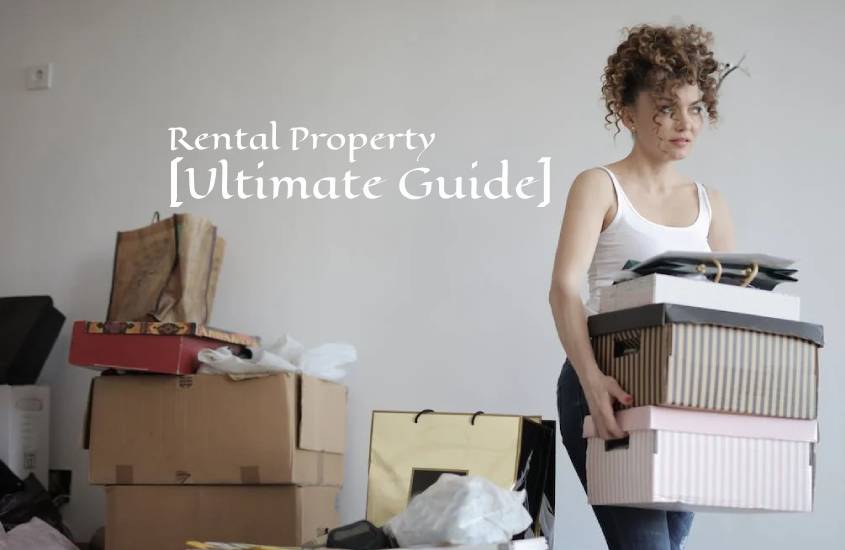
Engaging in the ownership and management of rental property can offer a profitable opportunity, ensuring a consistent flow of earnings and enduring financial stability.
Whether you’re a seasoned investor or a novice exploring this exciting opportunity, this comprehensive guide will walk you through every aspect of rental property ownership, from finding the right property to optimizing your rental income.
Let’s dive in and unlock the key strategies to success in the rental property market.
Getting Started
Before delving into the world of rental property, it’s crucial to establish clear investment goals. Determine whether you seek regular rental income, property appreciation, or a combination of both. Once your goals are set, selecting the right location becomes paramount.
Research local real estate markets, considering factors such as economic growth, job opportunities, and amenities.
Financing your rental property is another crucial step. Explore mortgage options, interest rates, and loan terms to find the best fit for your financial situation. Remember, a well-informed decision at this stage can significantly impact your investment’s success.
Rent to Own: A Path to Homeownership
In the realm of rental property, the “Rent to Own” arrangement offers a unique avenue for tenants to transition from renters to homeowners. This innovative approach combines elements of renting and buying, allowing tenants to lease a property with the option to purchase it at a predetermined price within a specified timeframe.
- How Rent to Own Works: In a “Rent to Own” agreement, tenants pay a slightly higher monthly rent, part of which is set aside as a down payment towards the eventual purchase of the property. This setup gives tenants the opportunity to build equity while renting, providing them with a more flexible path to homeownership, especially if they’re unable to secure a traditional mortgage upfront.
- Benefits for Tenants: For tenants aspiring to own a home but facing financial constraints or credit challenges, the Rent to Own option offers several advantages. It allows them to lock in a future purchase price, even if the market appreciates, and build their credit and financial stability over time. This arrangement also provides a chance to “test drive” the property before committing to ownership, ensuring it meets their needs and preferences.
- Benefits for Property Owners: From a property owner’s perspective, offering a Rent to Own option can attract a broader pool of tenants and potentially lead to a more responsible and committed tenancy. Additionally, property owners often retain the property’s appreciation potential, creating a win-win situation for both parties involved.
However, it’s important to note that Rent to Own agreements can be complex and require careful legal and financial considerations.
Clear terms, proper documentation, and legal guidance are crucial to ensure a smooth and mutually beneficial transaction.
Incorporating a Rent to Own section into your rental property strategy opens new possibilities for both tenants and property owners, fostering a pathway to homeownership that may not have otherwise been attainable.
Property Selection
One of the fundamental choices you’ll face is deciding between single-family homes and multi-unit properties. Each option presents unique benefits and challenges. Additionally, assess the property’s condition meticulously, as renovations and repairs can impact your budget and timeline.
Market trends play a pivotal role in property selection. Analyze historical data and current forecasts to identify areas with high demand and growth potential. A well-researched choice can lead to higher occupancy rates and rental income.
Preparing Your Property
Preparing your property for tenants involves several key steps. Renovations and repairs may be necessary to ensure the property is safe and attractive. Furnishing and staging contribute to a visually appealing space that can command higher rent prices.
Legal and safety requirements should never be overlooked. Familiarize yourself with local housing laws, obtain necessary permits, and ensure the property meets all safety standards. This not only protects your investment but also fosters positive tenant relationships.
Attracting Tenants
Crafting a compelling listing is essential to attract potential tenants. Highlight the property’s unique features and amenities, and use high-quality images to showcase its appeal. Thoroughly screen potential tenants to ensure a reliable and responsible rental experience.
Setting competitive rent prices is an art that balances maximizing income with attracting tenants. Research similar properties in the area and consider current market conditions to determine the optimal rent rate.
Managing Your Property
Successful property management relies heavily on proficient communication.
Build a positive landlord-tenant relationship by addressing concerns promptly and maintaining transparency. Handling maintenance and repairs efficiently enhances tenant satisfaction and preserves the property’s value.
Dealing with tenant issues requires empathy and adherence to legal procedures. From resolving disputes to addressing noise complaints, navigating these challenges professionally contributes to a harmonious living environment.
Optimizing Rental Income
Maximizing rental income involves strategic decisions. While raising rent is a possibility, it must be done judiciously to avoid tenant turnover. Implementing smart technology, such as keyless entry systems and energy-efficient appliances, can enhance property value and tenant satisfaction.
Expanding your property portfolio diversifies risk and increases income potential. Consider reinvesting profits into acquiring additional properties, leveraging your experience to scale your real estate ventures.
Legal Considerations
Lease agreements and contracts are essential tools for clarifying tenant and landlord rights and responsibilities. Draft comprehensive leases that address key aspects, including rent payment, maintenance responsibilities, and rules of conduct.
Understanding tenant rights and landlord obligations is vital to navigating legal matters effectively. Familiarize yourself with eviction procedures and tenant protection laws in your jurisdiction to prevent legal disputes.
Taxation and Finance
Tax implications are a significant consideration in rental property ownership. Consult tax professionals to optimize deductions and comply with reporting requirements. Keep detailed records of income and expenses to streamline tax preparation.
Collaborating with accountants and lawyers can provide valuable guidance in financial and legal matters. Their expertise ensures compliance with regulations and maximizes financial benefits.
Exit Strategies
Planning for the future is essential, even in rental property ownership. If the time comes to sell, understand the selling process and strategies to enhance property value. A 1031 exchange offers a tax-deferral option for reinvesting proceeds into a new property.
For long-term planning, consider estate and inheritance matters. Passing down the rental property to heirs involves legal intricacies that warrant professional advice.
Conclusion
Rental property ownership presents a wealth of opportunities for financial growth and security.
By following the strategies outlined in this guide, you can navigate the complexities of rental property management and investment, maximizing income while providing tenants with quality housing.
Embarking on the journey of rental property ownership is a dynamic endeavor that holds the potential for substantial financial rewards and long-term stability. Throughout this comprehensive guide, we’ve explored the essential steps and strategies necessary to thrive in the rental property market.









